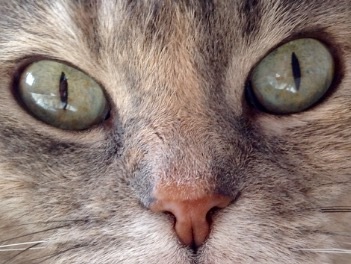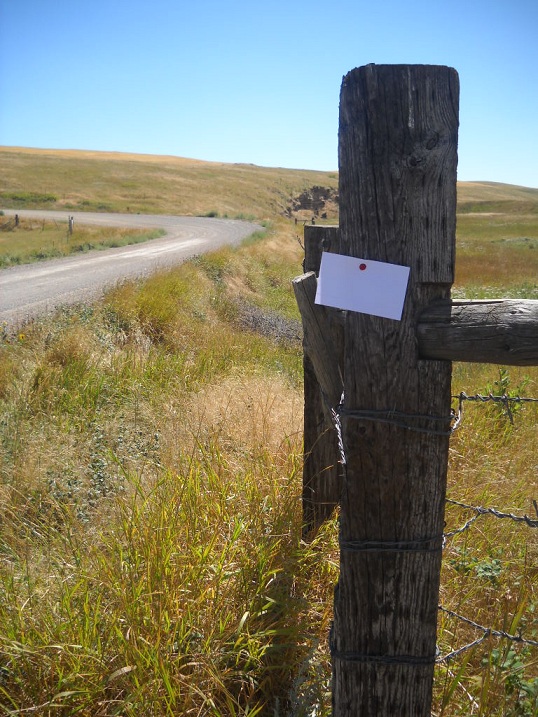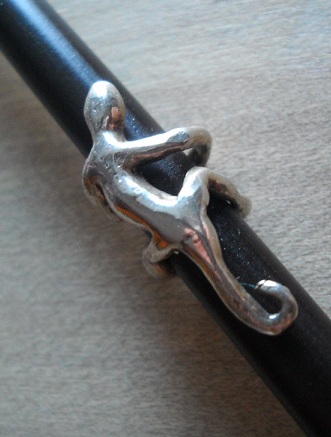“It was important, Dumbledore said, to fight,
and fight again,
and keep fighting,
for only then could evil be kept at bay,
though never quite eradicated. . . .”
– J K Rowling, Harry Potter and the Half-Blood Prince
“It was important, Dumbledore said, to fight,
and fight again,
and keep fighting,
for only then could evil be kept at bay,
though never quite eradicated. . . .”
– J K Rowling, Harry Potter and the Half-Blood Prince
 “I was watching your eye contact as you visited. That was weird. Your eyes were tearing up when he was talking to you, but it was a friendly conversation. What was that about?”
“I was watching your eye contact as you visited. That was weird. Your eyes were tearing up when he was talking to you, but it was a friendly conversation. What was that about?”
Jen wiped her eyes. “I can’t look at him without my eyes watering. It’s uncomfortable – not like I’m gonna cry, but more like my eyes hurt. So I pretend like I’ve got an eyelash in my eye and I keep rubbing them. It’s just really uncomfortable to keep my eyes on him for very long when he’s talking – or any time.”
I turned to Will, “What do you think?”
Will shook his head, “I feel the same way. It’s hard to look at him for long. Oh, and I feel myself getting anxious when I try to tell him something. Like I’m afraid he’ll criticize what I say, so I say it fast so I can get it over with, and then I sound like I’m slurring my words.”
I said, “Yeah, and then you open yourself up for more criticism.” Continue reading →
She read the quote again. She closed the laptop and walked over to the peely-paint cupboard that held art supplies and construction paper. What color should she pick? She settled on purple. She looked for a marker in the Kerr jar on the kitchen table. She wanted something bold – a marker that would yell. She found a juicy dark blue and purposefully wrote the quote.
She taped the quote next to the others that read: That is not my journey, NMP – not my problem, and No steamrollers!
As she re-read the quotes, she visualized a thick twisted rope. The strands of rope were different colors, twined together to make a rope as thick as her wrist. Each color represented something or someone that she’d allowed to drag her to where she found herself today.
The black represented every one-sided, caustic, demanding, life-sucking relationship she’d ever been in – the narcissists.
The charcoal symbolized her limiting self-talk.
The brown represented her expectations – going as far back as childhood – about what she thought her life would be.
The grey stood for definitions of who she was – assigned to her by others.
The burnt orange represented her lack of self-confidence.
The dark green was every negative, gossip-filled conversation that she hadn’t had the guts to excuse herself from.
She looked back at the quote.
Let go or be dragged.
She wondered where she’d be if she hadn’t allowed that rope to drag her where she is today. She laughed and told herself, “Well, that’s a waste of time. You could spend the rest of the day wondering where you could have gone, or you could pull out a pair of scissors and cut that rope apart.”
The burnt orange was the first to go, followed by the grey and the dark green. The brown was the most fun to cut. She ceremoniously snipped the brown and felt her mood brighten. There would be new doors to open once she locked the door on expectations.
The charcoal would take some effort. She’d have to sharpen the scissors for that one. Limiting self-talk had been her constant companion. With sharper scissors, she began to snip the threads of the charcoal strand.
She snipped – “You’re not good enough.”
She cut – “You’re an inconvenience.”
She removed – “Why aren’t you more like everyone else?”
She saw charcoal threads scattered on the floor at her feet. She noticed that the charcoal strand was tightly connected to the black strand. She kept cutting.
The black strand was the thickest – requiring more than a pair of scissors.
As of this writing, she’s still hacking away at the black strand.
Let go or be dragged.
Forty years later, we’ll step off that hamster wheel and wonder if it’s worth it. We’ll turn to our kids and start to say, “Hey, I dunno if this is such a good idea.”
They won’t hear us over the din of their own spinning wheels.
 “Underlying all of the constant campaigning needed to uphold this position is a profound vulnerability that lies at the very core of his psyche. Such is the narcissist who must mask his fears of inadequacy by ensuring that he is perceived to be a unique and brilliant stone. In his offspring he finds the grave limits he cannot admit in himself. And he will stop at nothing to make certain that his child continually tries to correct these flaws. In actuality, the child may be exceedingly intelligent, but has so fully developed feelings of ineptitude that he is incapable of believing in his own possibilities.”
“Underlying all of the constant campaigning needed to uphold this position is a profound vulnerability that lies at the very core of his psyche. Such is the narcissist who must mask his fears of inadequacy by ensuring that he is perceived to be a unique and brilliant stone. In his offspring he finds the grave limits he cannot admit in himself. And he will stop at nothing to make certain that his child continually tries to correct these flaws. In actuality, the child may be exceedingly intelligent, but has so fully developed feelings of ineptitude that he is incapable of believing in his own possibilities.”
– Joshua Braff, The Unthinkable Thoughts of Jacob Green
 How do we forgive our fathers, maybe in a dream?
How do we forgive our fathers, maybe in a dream?
Do we forgive our fathers for leaving us too often, or forever, when we were little?
Maybe for scaring us with unexpected rage, or making us nervous, because there never seemed to be any rage there at all.
Do we forgive our fathers for marrying, or not marrying our mothers, for divorcing, or not divorcing our mothers?
And shall we forgive them for their excesses of warmth or coldness?
Shall we forgive them for pushing or leaning, for shutting doors, for speaking through walls, or never speaking, or never being silent?
Do we forgive our fathers in our age or in theirs? Or in their deaths, saying it to them, or not saying it?
If we forgive our fathers what is left?
– Thomas Builds-the-Fire
Mantras, prayers, meditations, famous quotes,
personal Post-Its, and journal entries –
these are the words I used to move on
and create a better future for myself and my kids.
This new ebook is a compilation of the powerful words
that made a difference in our lives.
Find Words Got Her Home on Smashwords.com or Amazon.com.
Thanks for reading!
 A few more boxes to pack and load into the car and she’d be done.
A few more boxes to pack and load into the car and she’d be done.
She thumbed through magazine clippings that had been filed in an office drawer. Some clippings dated back to her college years – that dreamy phase of, “When I grow up and marry, I hope my kitchen has …..”
There were clippings of herb gardens, bathroom paint colors in sage and mint, examples of open shelves instead of upper cabinets for the ideal kitchen, and nursery ideas.
__________
Her girlfriends thought she was crazy for not wanting upper kitchen cabinets. She loved how open shelving prevented her from collecting junk. Continue reading →
 The lizard brain is hungry, scared, angry, and horny.
– Seth Godin
The lizard brain is hungry, scared, angry, and horny.
– Seth Godin